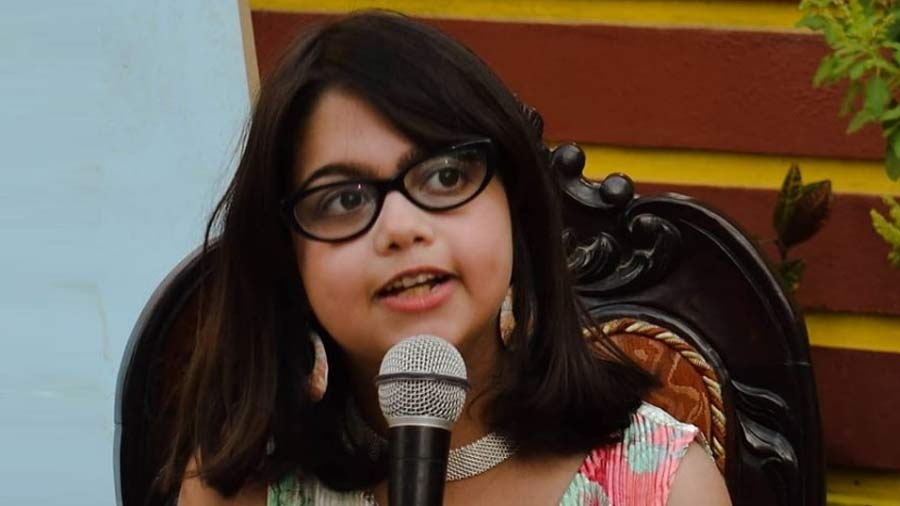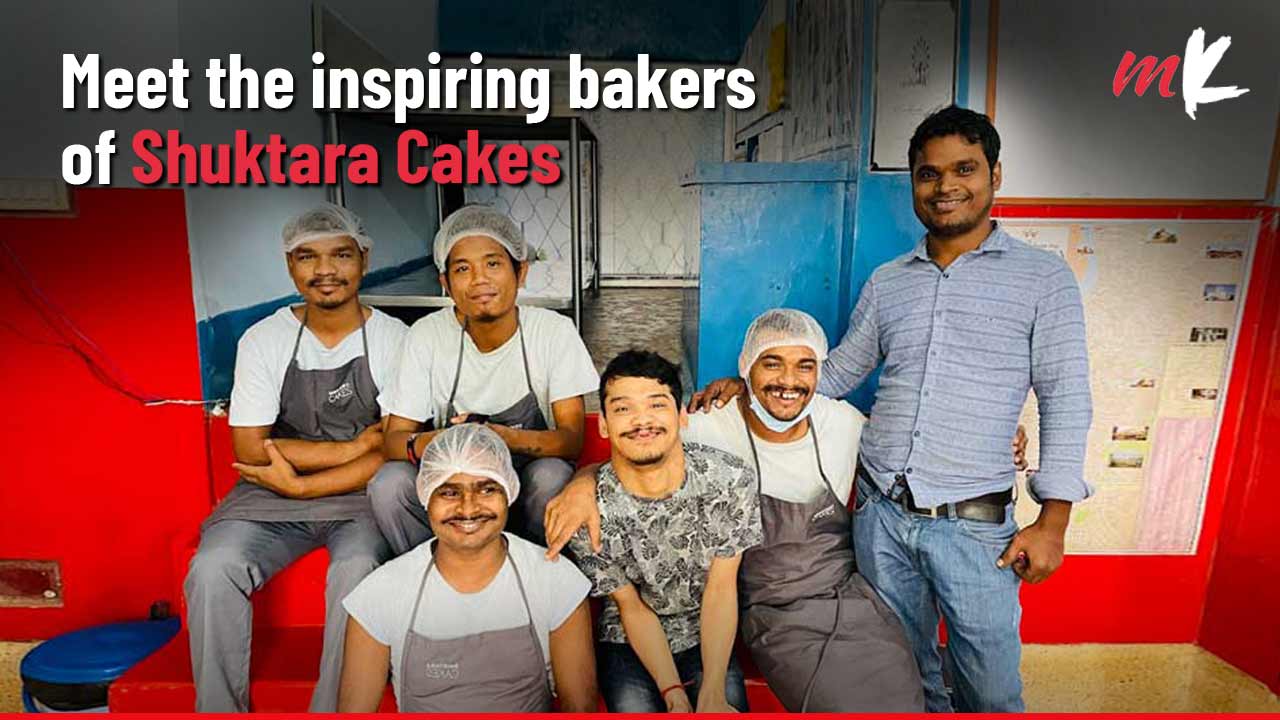Growing up, Anusha Mishra was quiet and introverted. They felt shunned, self-hatred and lonely — all because their disability made them stand out from what society considered ‘normal’. They spent their days in the depths of despair, ashamed of their disability, trying to fit into a largely ableist society that seemed to have no room for them.
But Anusha Mishra doesn’t exist anymore. The pandemic manifested Nu.
Nu, an alum of La Martiniere for Girls, Kolkata, and Delhi’s Lady Shri Ram College for Women, has grown to love their disability, but doesn’t allow it to define their identity. “It took me 22 years to realise this. Now, I am working to undo all that self-hatred that I had for my disabled body all these years. I actively work at unhiding my disability and helping others unhide theirs. I’m unlearning all those years of internalised ableism,” says Nu.
‘No disabled child will feel the way I felt when I was 10-years old — miserable and alone’
On April 10, 2020, Nu founded Revival Disability India — a supportive community by and for the disabled. A community that is inclusive, encouraging, and most importantly, kind. “I founded Revival Disability India aiming to form an intersectional and accessible future where no disabled child will feel the way I felt when I was 10-years old — miserable and alone,” says the 24-year old.
Revival Disability India was born out of Revival Disability Magazine — an e-magazine that is essentially a helpful manual for the disabled. It all happened quite unexpectedly. One pandemic afternoon, Nu published a personal narrative on Instagram that would eventually give rise to this tight-knit community.
“I had had the opportunity to write about my experiences of disability and chronic illness before. But I always felt people wanted it written in a very specific way — a way that would inspire the able-bodied. I draw power from my experiences and I wanted to write about what it is like navigating life as a disabled, queer, non-binary person,” says Nu.
There was a certain relatability in their narrative, which drew disabled folk from around the world to the platform. Revival Disability Magazine started off as an Instagram page and now functions as a digital magazine that features personal narratives touching upon topics that society often deems taboo — from gender identities beyond the binary and queer love, to sex toys for the disabled and romantic relationships.
“We’re trying to create a repository of experiences, which will help guide future generations of the disabled. I never had this when I was growing up, so I want to create that for others,” explains Nu.
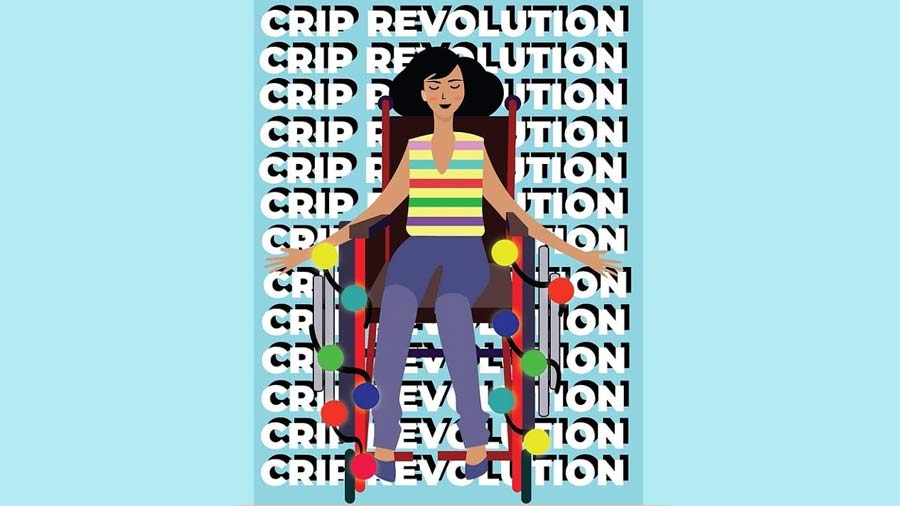
‘I want to start a disabled riot!’
The mission behind Revival Disability India is to #unhidethedisablilty — to take the disabled community towards visibility. The community works towards creating a space that represents people who have been constantly ostracised by society. “The disabled are so much more than unfortunate. We feel, we grieve, we resist, we rebel, we laugh, we accept, we can start an entire social movement from the comfort of our beds!” laughs Nu.
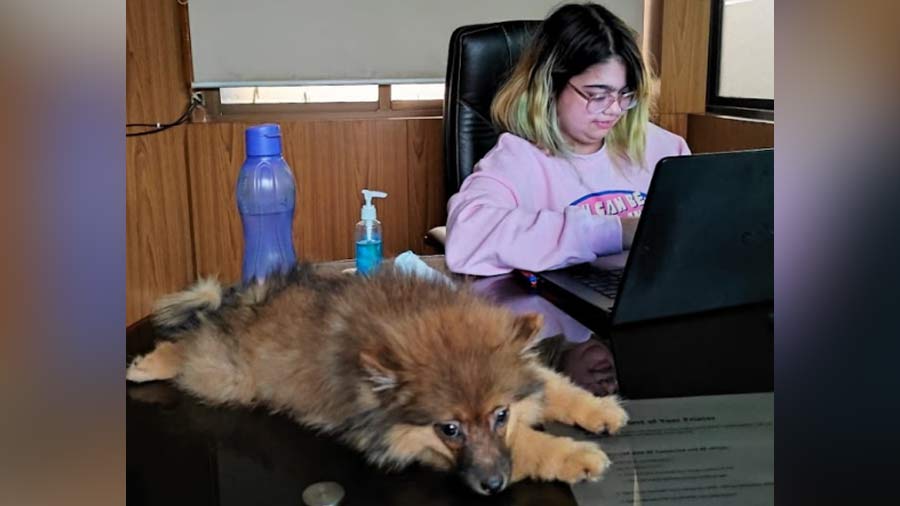
Nu at work
Revival Disability India also helps disabled folk break away from stereotypes and misconceptions and express their anger and dissent against the normalised ableist structures. Nu says, “I do not want to inspire through my words. I want to start a disabled riot! We deserve a place in society.”
Revival Disability India hosts a number of virtual and physical workshops for disabled folk that help them navigate the hurdles life throws at them. Their past ones, like Disabling Academia and Ableism Faced in Fieldwork (a workshop that explored fieldwork requirements and academic deadlines that are designed solely for able-bodied persons), Disability Based Violence (a workshop which saw disabled folks speak out about sexual abuse and domestic violence they’ve experienced) and A Musical Form of Dissent (a workshop held by a disability affirmative music therapist with autism to help disabled children) have been hugely popular.
‘I’m trying to help others love their disabilities’
The initiative also hosts ‘care circles’ which are safe spaces for disabled folk to attend and talk about anything under the sun. These spaces are designed to help the community accept and love themselves.
“I considered my disability to be my deepest flaw. I hated my giant monstrous shoes and my voice. But the irony was, that I couldn't hide my disability anywhere. I was and am very visibly disabled. I had to actively live with my disability and love myself with my disability. And I’m actively trying to help others do the same,” says Nu.
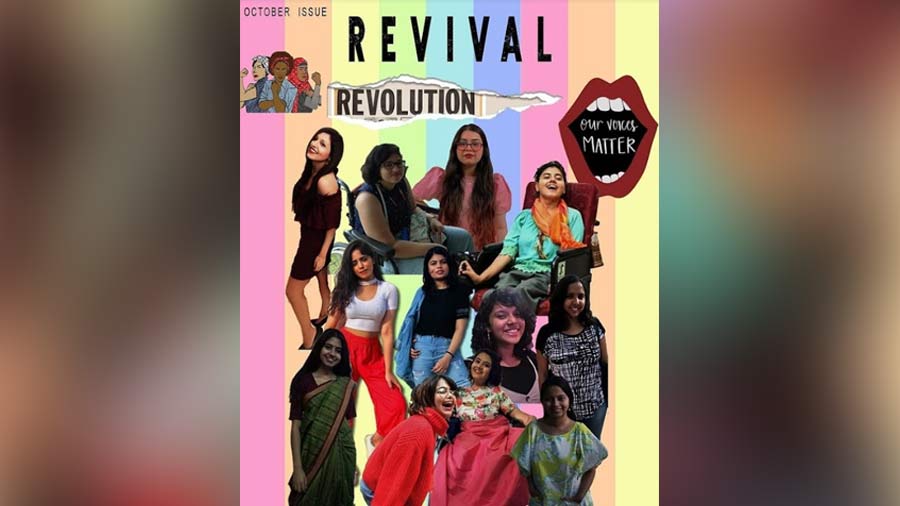
A look at a recent cover of Revival
Developing a disability can be very confusing and chaotic, especially for a child. So one of Revival Disability India’s main goals is to be there for disabled children. Nu explains, “All someone needs to do is help them process and understand how they can cope. Every time a disabled adult walks confidently into a room, taking up space and feeling like they belong there, a disabled child in the same room looks up with wonder in their eyes and hopes to grow up to be that disabled adult one day!”
Nu introduced ‘Cripplentines Week’ in the run-up to Valentine’s Day — a week devoted to celebrating love, with the term ‘cripplentine’ substituting the stigma attached to the word cripple.
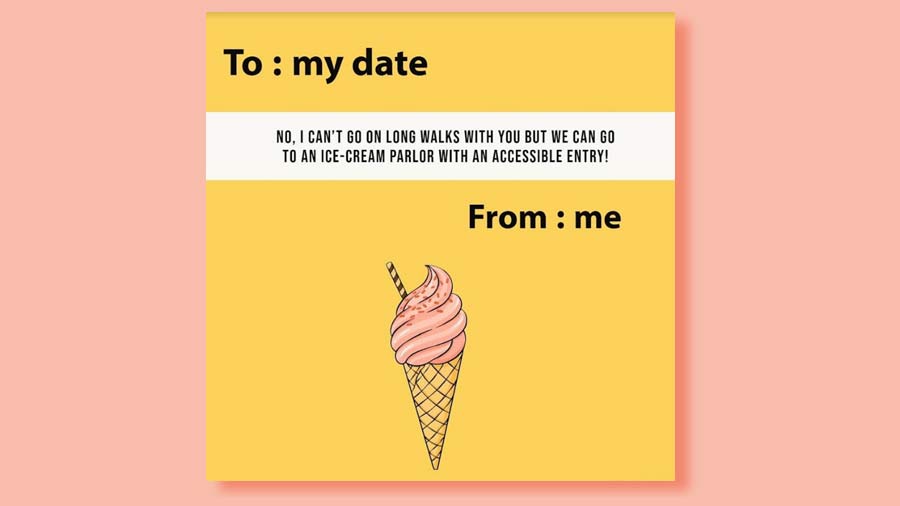
A poster made by Nu
Cripplentines Week reclaimed love, sex and intimacy for disabled individuals, through narratives and illustrations of love — be it between queer and disabled friends or an asexual autistic person who dreamt of fashioning their own rules — accurately representing disabled individuals who scribble outside heteronormative margins.
“The disabled community will find a place in society. I have decided that if they don’t allow us a seat at their table, we’re going to bring our own accessible chairs with armrests and plenty of cushions!” says Nu.
Read Revival Disability Magazine here.
